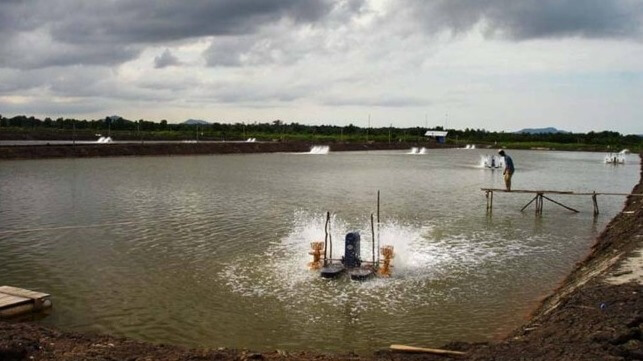Indonesia Scrutinizes Scrap Steel and Shrimp Trades After Cesium Scare

After a radioactive-shrimp scare earlier this year, the government of Indonesia is now requiring exporters to certify that their product is free of radioactive cesium before it is shipped to the United States.
Shrimp producers in Java and Lampung will have to send independent lab test results in to Indonesia's KKP, with follow-up testing to be performed at a national laboratory. The process applies to certain companies that export to the United States and have not had problems before. The firms that have had problems with cesium in their shipments before will have to undergo a separate, more stringent process meeting American requirements.
Indonesia is the fourth-largest producer of whiteleg shrimp in the world. In August, inspectors in the U.S. found cesium contamination in shipments tracing back to PT Bahari Makmur Sejati (BMS Foods), which supplies a third of the shrimp that Indonesia exports to American consumers. The trace contamination of the radioactive metal affected hundreds of thousands of pounds of product at major retailers across the country, forcing sweeping recalls. The amount present in the packaged shrimp was not large enough to be dangerous to consumers in a single dose, but repeat long-term exposure could cause cumulative harm (for example, elevated risk of cancer).
Indonesian authorities searched BMS' supply chain for possible sources of contamination, and found above-background levels of radioactivity in the area around BMS' packing plants on Java. They traced the source back to a now-shuttered steel mill, Peters Metal Technology, which smelted scrap metal to produce recycled steel. The investigation into the cause of contamination is under way, and a criminal inquiry has been opened.
As a precautionary measure, imports of foreign scrap steel and iron have been temporarily suspended pending a stricter regulatory regime. Cesium-137 is artificially-produced in nuclear reactors, and can be found in specialized medical devices and instruments, a potential route for scrap metal supply chain contamination. It is a byproduct of nuclear fusion, and can also be found in the environment in trace amounts as a legacy of Cold War-era weapons testing.
Top image: Shrimp aquaculture pond, Indonesia (Herman Gunawan / CC BY SA 3.0)
